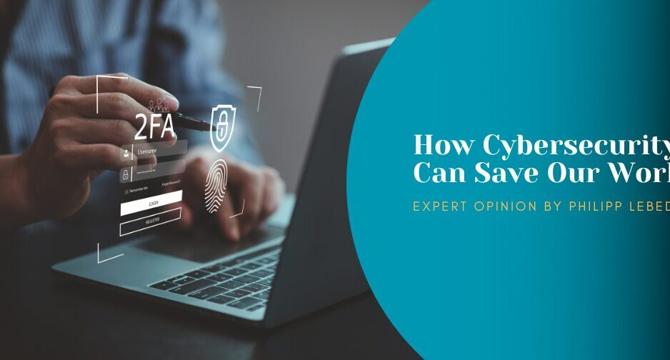TechBullion
5d
356

Image Credit: TechBullion
How Cybersecurity Can Save Our World: Expert Opinion by Philipp Lebedev
- The importance of cybersecurity has reached a critical juncture with increasing interconnectivity through digital networks and the expansion of the attack surface. The need for a proactive and adaptive approach to cybersecurity is emphasized, including the use of strong passwords, regular software updates, and data backup, and employee training. National cybersecurity policies and international cooperation are necessary to combat global threats. The financial institutions and digital service providers must learn to stay one step ahead to effectively counter the ever-growing cybersecurity threats. The basic principles that should be considered in cybersecurity include Confidentiality, Integrity, Availability, Authentication, Authorisation, Disclaimer, Resilience, and Maintaining trust and confidentiality. Effective cyber security measures, such as using strong passwords, regularly updating software and backing up data, are fundamental in preventing and minimizing cyber-attacks.
- The cybersecurity strategies must take a proactive and adaptive approach, including regularly updating security protocols with robust defenses such as encryption, multi-factor authentication, and auditing systems for vulnerabilities. Cybersecurity should be a high priority for businesses by training employees and protecting critical infrastructure from state-level cyber attacks.
- Financial institutions need to adopt innovative technologies and stay one step ahead of ever growing cybersecurity threats, including cyber warfare, cryptojacking, anti-democratic cyberattacks, cyber espionage, and data breaches.
- The basic principles that should be considered in Cybersecurity include Confidentiality (safeguarding sensitive information), Integrity (ensuring accuracy and consistency), Availability (minimizing downtime), Authentication, Authorisation, Disclaimer (providing reliable evidence of actions), Resilience (recovering disruptions), and Maintaining trust and confidentiality (protecting privacy).
- 61% of organisations that have been victims of a hack reported having taken remedial action, which usually involved forensic analysis and temporary shutdown of systems. 53% of organisations that were hacked had their data stolen, and 30% had the potential for data theft.
- Effective cybersecurity measures, such as using strong passwords, regularly updating software and backing up data, are fundamental in preventing cyber attacks and minimising their impact on different sectors. To protect the data, organizations must notify regulators and affected individuals.
- To protect important information, people must use strong passwords, regularly update software, and back up data. They should also connect only to encrypted Wi-Fi networks, such as WPA2 or WPA3, and use strong passwords for protection.
- Investing in cybersecurity and educating employees contributes to a secure digital environment, which in turn builds user confidence and protects society as a whole. Effective cybersecurity measures are fundamental in preventing cyber attacks and minimizing their impact on different sectors.
- National cybersecurity policies and international cooperation are necessary to combat global threats. Cybersecurity must be seen as a way of life to effectively counter the ever-growing threats.
- With cybercriminals becoming increasingly resourceful, it is important that both organizations and individual users embrace cyber security as a way of life. In this way, cybersecurity not only protects individual data, but also ensures the stability and security of our world.
Read Full Article
21 Likes
For uninterrupted reading, download the app